Web Dev / Adaptive Designs / Analytics Integration
KAREN
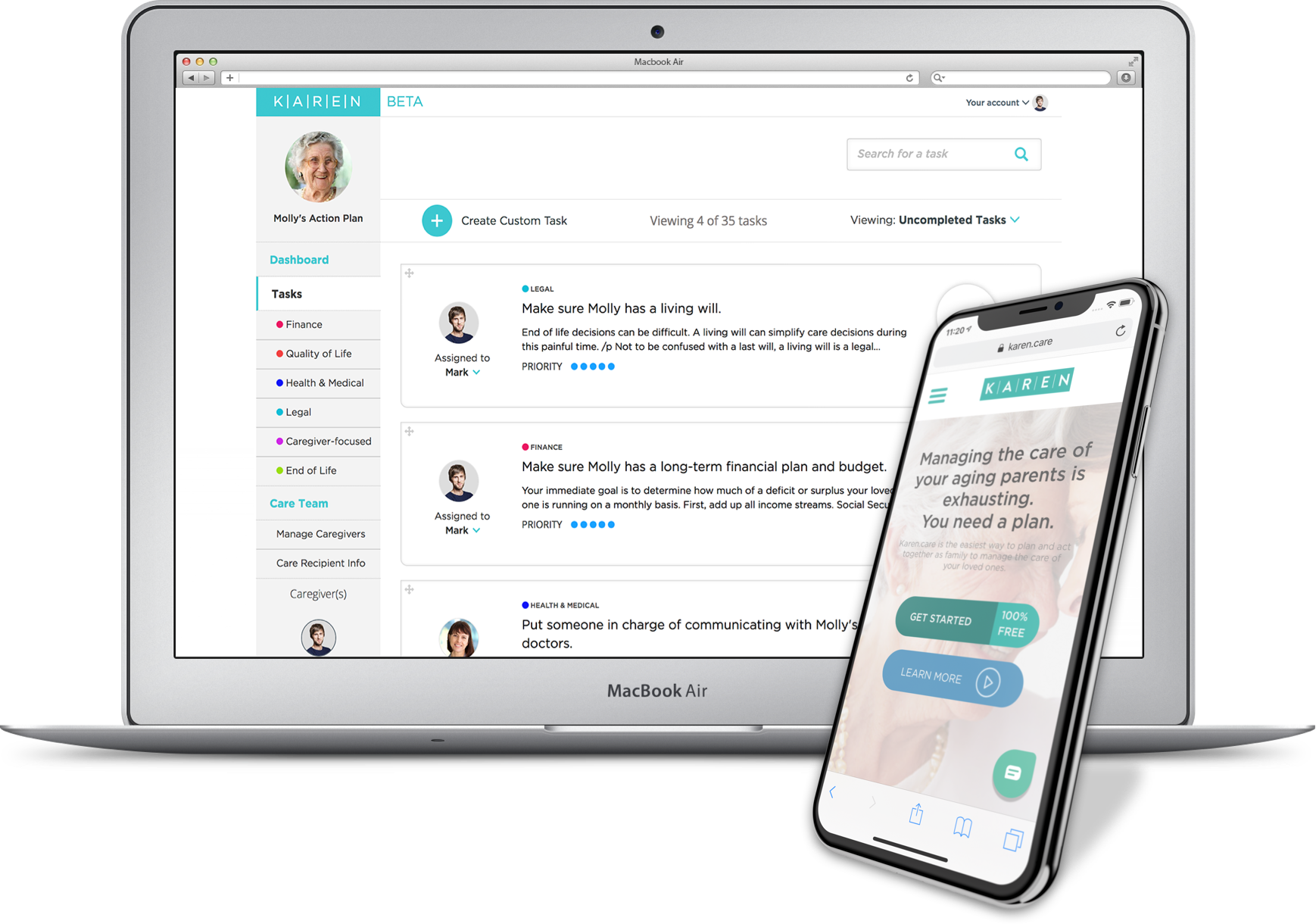

Web Dev / Adaptive Designs / Analytics Integration
KAREN

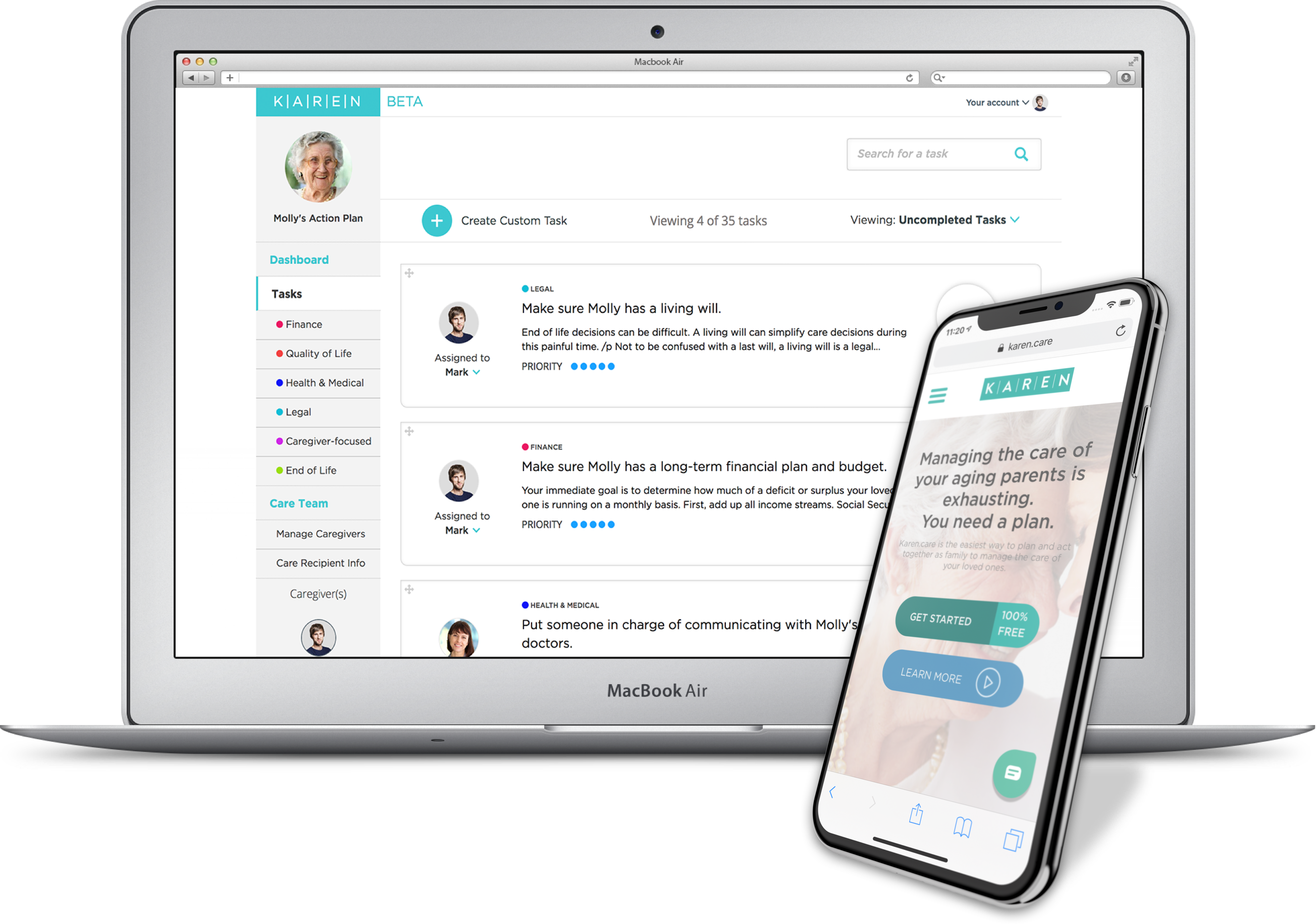
Karen provides algorithms and tools to help people take better care of their loved ones. It finds where you are in the caregiving process and prepares an action plan tailored to your needs. Its algorithm prioritizes each task and gives guidance. The collaboration tools make it easy to coordinate the progress with family and friends.
Project Team
Dedicated team consisting of Project Manager and Full Stack Web Engineer.
Technologies used
Python, Django, AWS, Docker, Redis, PostgreSQL, Websockets
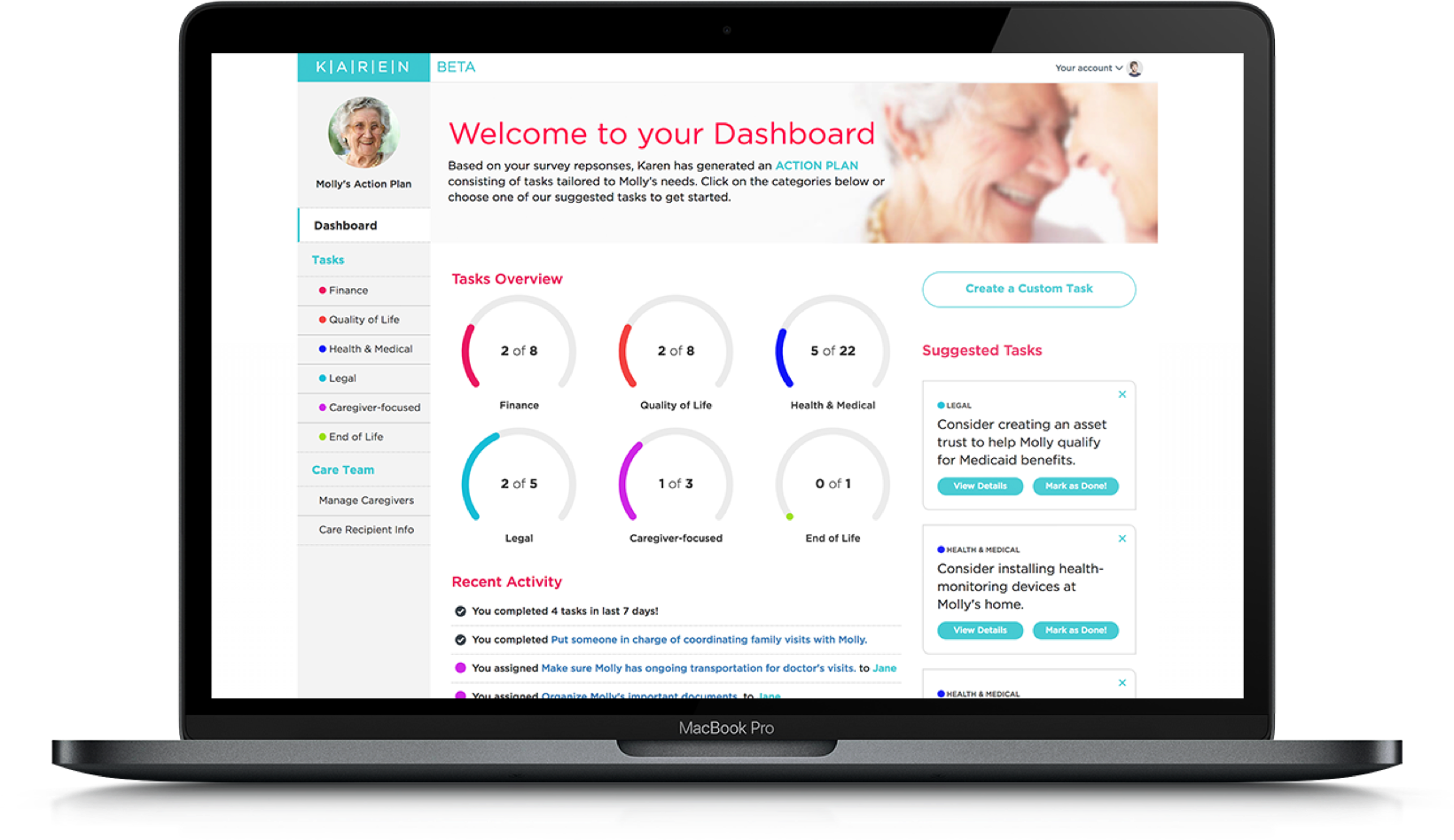
The Challange
The most important part of the system is the recommendation engine. Its goal is to provide users with the set of tasks that will make the caregiving easier. The algorithm adapts to the user input and dynamically selects the questions.
Our impact
Cruxlab is the development partner of the startup. Our engineers created and implemented the core algorithms of the Karen engine. We handle development, deployment, and maintenance of the production environment.
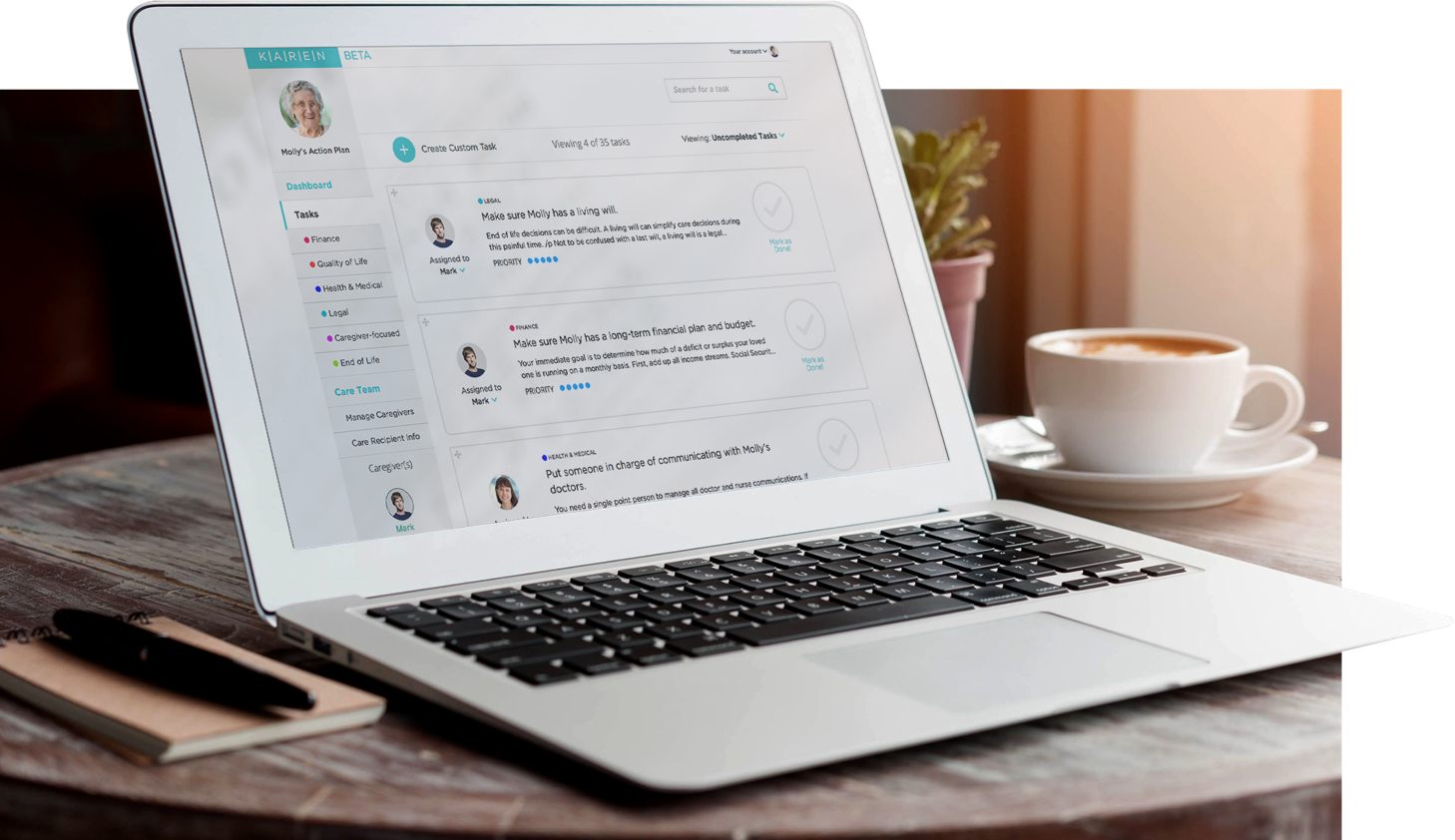
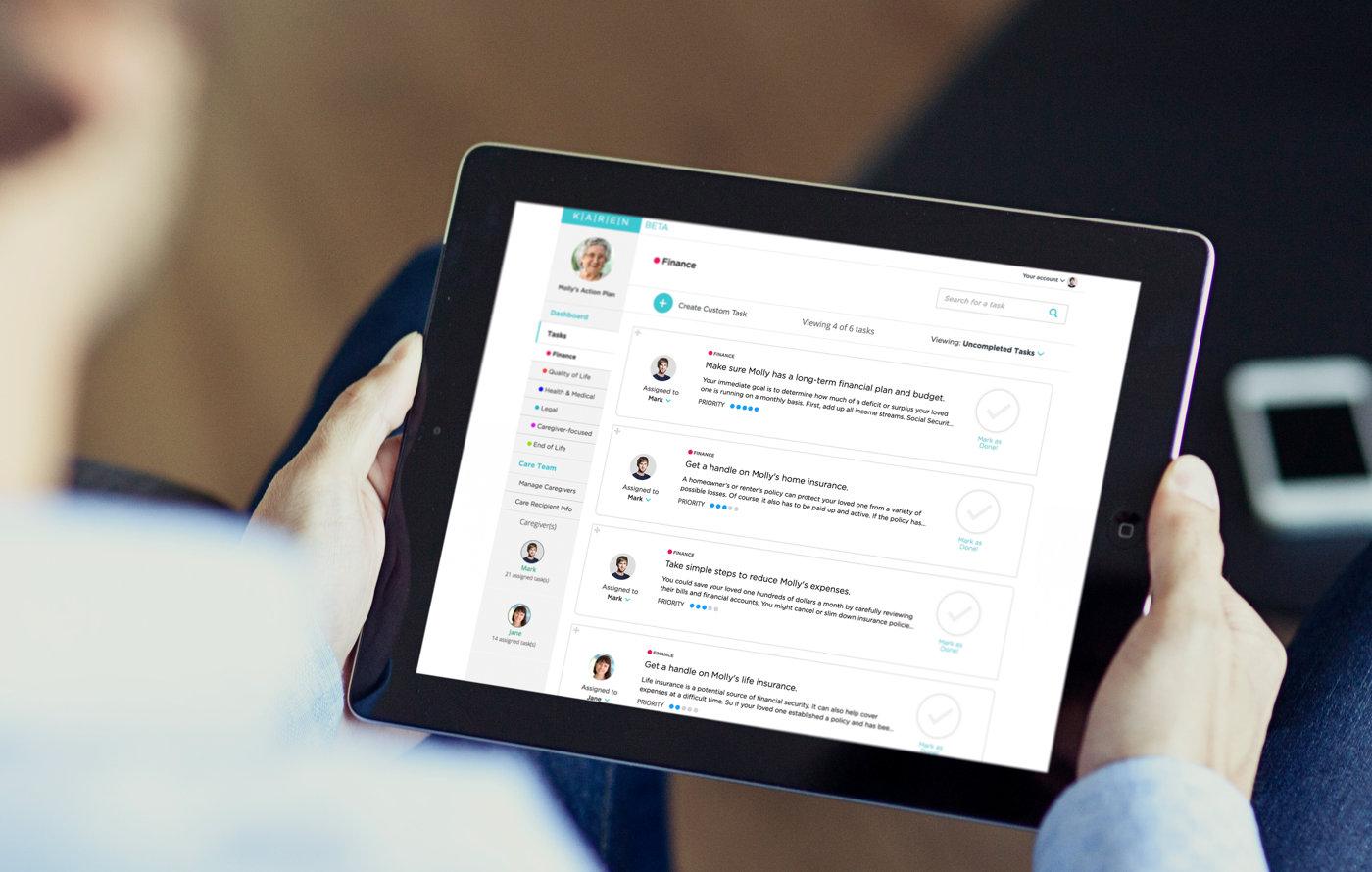
The Atlassian Bamboo continuous integration server (CI) packages the system into Docker images. The server then deploys the images to AWS Elastic Beanstalk (AWS EB). AWS EB provides easy and robust way to manage updates. It also handles auto scaling of the underlying architecture. Amazon RDS serves as a managed database solution for Karen.
“Our conversion rate is high, and we’ve received very positive reviews from users, industry professionals, potential partners, and investors.
Cruxlab‘s level of communication and quality of code they deliver is robust and scalable. We had no problems fixing bugs or building on top of it when needed.
They also work well independently and have the ability to make creative and design decisions without supervision. For example, they designed a lot of UI that doesn’t typically come with Agile development, while also making good decisions in fleshing that out and filling in gaps.”
The Result
- Users answer the survey that changes questions depending on the previous answers to identify their needs.
- The adaptive algorithm generates a prioritized list of tasks. The algorithm selects tasks that will improve the quality of life of the care recipient.
- The tasks are grouped into categories such as “Finances”, “Health”, “Legal”. Each category contains tasks that are important for the caretaker.
- The app helps caregivers with monitoring, managing, and updating of taking care process.
- Users can invite other caregivers to share the tasks with them and track progress.

